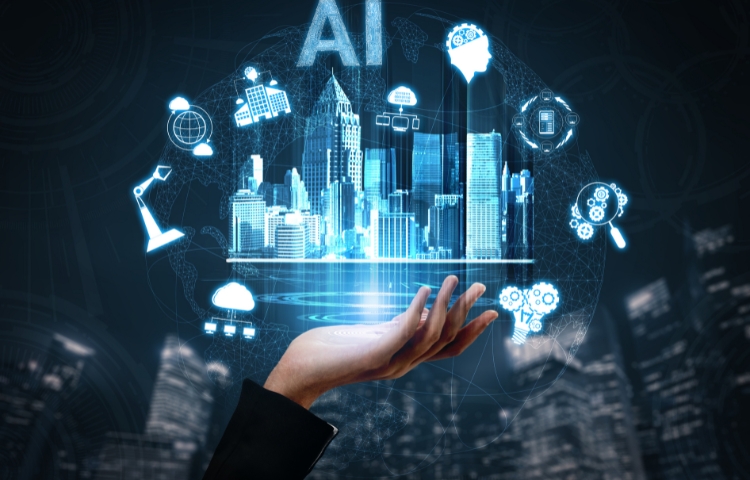Artificial Intelligence (AI) is no longer just a futuristic concept; it’s becoming a transformative force in many industries and daily life. From healthcare and finance to retail and entertainment, AI is shaping the way businesses operate and people live. In this article, we will explore the rise of AI, its impact across various sectors, and how it’s changing the way we interact with technology.
What is Artificial Intelligence?
Artificial Intelligence refers to the development of computer systems that can perform tasks typically requiring human intelligence. These tasks include reasoning, learning, problem-solving, language processing, and perception. AI systems can learn from data, adapt to new information, and even make decisions without human intervention.
AI’s Impact on Key Industries
- Healthcare AI is revolutionizing healthcare by improving diagnostic accuracy, streamlining administrative tasks, and enhancing personalized medicine. AI-powered tools can analyze medical images, assist doctors in diagnosing diseases, and help researchers find new treatments more efficiently.
- Finance AI is transforming the financial industry by automating processes like fraud detection, credit scoring, and customer service. Machine learning algorithms can analyze vast amounts of financial data, providing insights that help banks and financial institutions make smarter decisions.
- Retail and E-commerce AI is reshaping the retail landscape with personalized shopping experiences, inventory management, and predictive analytics. AI-powered recommendation systems can suggest products based on customer behavior, improving customer satisfaction and driving sales.
- Transportation Autonomous vehicles and AI-driven logistics systems are changing the way goods are transported. AI is helping optimize delivery routes, reduce fuel consumption, and improve safety. In the near future, self-driving cars may become a mainstream mode of transportation.
- Entertainment In the entertainment industry, AI is used for content recommendations, enhancing user experiences, and even creating original content. Streaming platforms like Netflix and Spotify use AI to suggest movies, shows, and music based on user preferences.
AI’s Influence on Everyday Life
- Smart Homes AI has made its way into our homes through devices like smart thermostats, voice assistants (such as Amazon Alexa and Google Assistant), and security cameras. These devices use AI to learn user preferences and improve convenience.
- Personalized Experiences AI is behind many personalized experiences we encounter daily, such as targeted ads on social media, customized shopping experiences, and news recommendations. AI systems analyze data about our behaviors and interests to deliver content that is relevant to us.
- Virtual Assistants Virtual assistants like Siri, Google Assistant, and Alexa are powered by AI algorithms that allow them to understand natural language and respond to commands. These assistants help with everything from setting reminders to answering questions and controlling smart home devices.
- Social Media AI is also at the core of social media platforms, helping to filter content, suggest friends or followers, and even predict what you might like to see next. Algorithms analyze your interactions to tailor your feed to your interests and preferences.
The Future of AI
AI is still evolving, and its potential applications are limitless. As technology advances, we can expect AI to play an even larger role in our lives. From healthcare innovations to advancements in autonomous transportation and beyond, AI has the power to revolutionize nearly every industry and improve daily life.
However, as AI becomes more integrated into our society, it also raises ethical concerns regarding privacy, job displacement, and the potential for bias in algorithms. The future of AI will depend on how we address these challenges while harnessing its benefits.
Conclusion
The rise of AI is transforming industries and everyday life in profound ways. From healthcare to entertainment, AI is making processes more efficient, personalized, and accessible. As AI continues to evolve, it promises to bring even more innovations that will shape our future, while also challenging us to navigate the ethical implications of these advancements.

